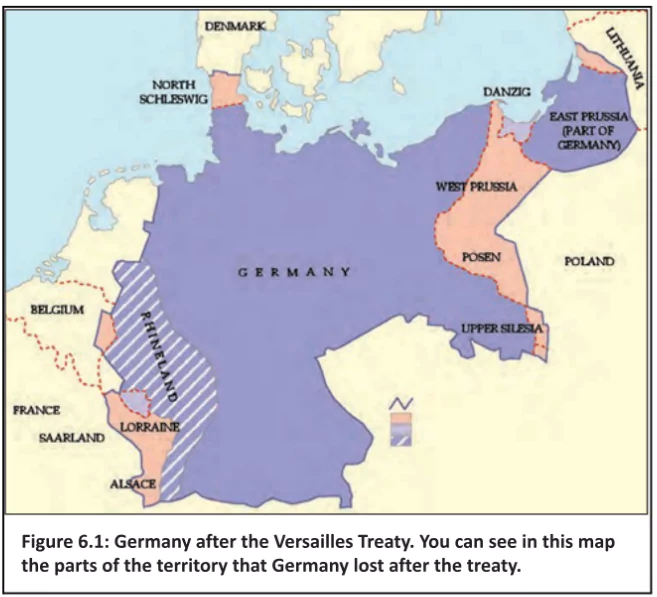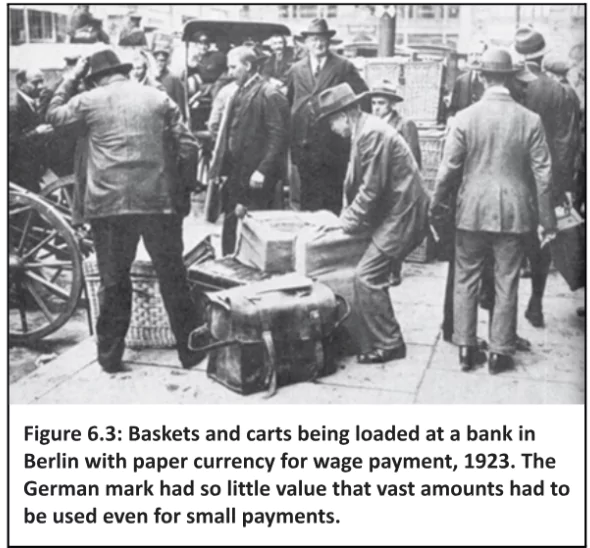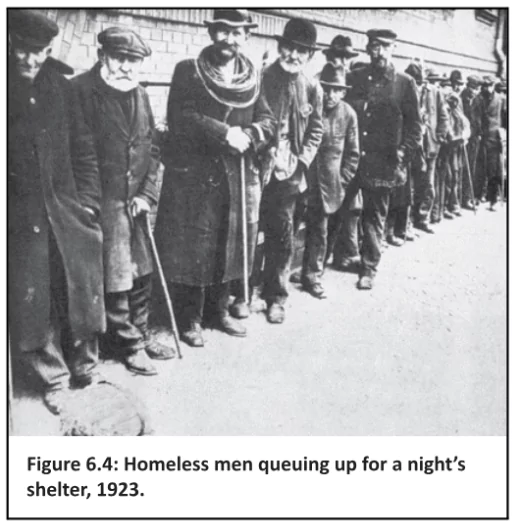![]() 19 Jul 2024
19 Jul 2024
| Bibliography: This chapter encompasses the summary of Chapter 3- Class 9 NCERT (India and contemporary world I). |
Till today Holocaust and Nazism in Germany in the early 20th century serve as horrific reminders and examples of dangers of extremism, discrimination, and totalitarianism. Nazism was a political ideology that emerged in Germany during the early 20th century. Led by Adolf Hitler, Nazi Party gained power in 1930s and played a pivotal role in World War II. Hitler’s determination to make Germany into a mighty power and his ambition of conquering all of Europe blinded him towards crimes against humanity that he ordered. Nazism and killings of Jews in Germany are a structure of ideas about the world and politics.
| Allies – The Allied Powers were initially led by the UK and France. In 1941 they were joined by the USSR and USA. They fought against the Axis Powers, namely Germany, Italy and Japan. |
Demise of German Empire: Germany was a powerful empire in the early years of the 20th century. It fought the First World War (1914-1918) alongside the Austrian empire and against the Allies (England, France and Russia). Germany made initial gains by occupying France and Belgium. However, the Allies won by defeating the Central Powers and Germany in November 1918.

Financial Impact: From a continent of creditors, Europe turned into one of debtors.

Resource Depletion: Germany had fought war largely on loans and had to pay war reparations in gold.
 The image of Germans carrying cartloads of currency notes to buy a loaf of bread was widely publicised during this time.
The image of Germans carrying cartloads of currency notes to buy a loaf of bread was widely publicised during this time. Fragile German Economy: The stability between 1924 -1928 was short-lived. The industrial recovery and investments in Germany were dependent on short-term loans, mostly from USA.
| Must Read | |
| Current Affairs | Editorial Analysis |
| Upsc Notes | Upsc Blogs |
| NCERT Notes | Free Main Answer Writing |
Economic crisis, political instability, and widespread despair provided fertile ground for the rise of Nazism and Hitler. The dire conditions in Germany following World War I created a desperate population susceptible to extremist ideologies. Hitler and the Nazi Party capitalized on this vulnerability by offering simplistic solutions and a scapegoat for the nation’s problems.
| Related Articles | |
| Coal Gasification | India’s Republic Day 2024 |
| VIJAYANAGARA EMPIRE | WORLD WAR II’S IMPACT |
<div class="new-fform">
</div>